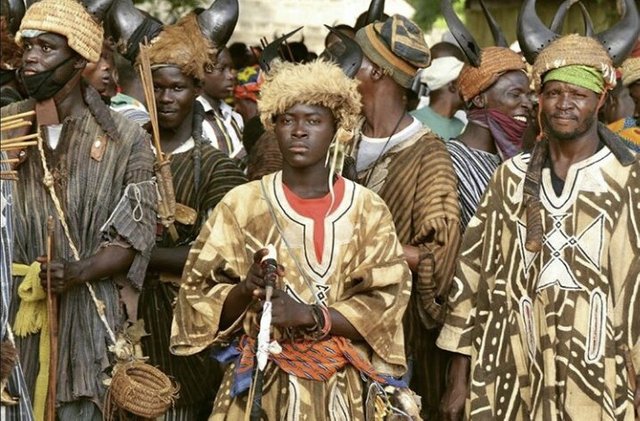The Oldest Kingdom In Ghana : The Dagbon Kingdom

The Kingdom of Dagbon, often referred to as the oldest kingdom in Ghana, boasts a rich history that spans over seven centuries. Situated in the northern region of Ghana, Dagbon has played a significant role in the cultural, political, and social landscape of the area.
Historical Overview
The origins of the Dagbon kingdom date back to the 15th century. According to oral traditions, the kingdom was founded by a warrior named Tohazie, also known as the "Red Hunter." Tohazie's exploits and leadership laid the foundation for what would become a powerful and influential kingdom in West Africa.
Dagbon's capital, Yendi, became the political and cultural center of the kingdom. The rulers of Dagbon, known as Ya-Naas, have maintained a lineage that has governed the kingdom through various historical epochs, from pre-colonial times to the modern era.
Political Structure
Dagbon's political structure is deeply rooted in tradition. The kingdom is divided into several administrative divisions, each governed by local chiefs who owe allegiance to the Ya-Na. The Ya-Na holds supreme authority, but governance at the local level is characterized by a degree of autonomy, allowing for a decentralized system of rule that has helped maintain social order and cohesion over the centuries.
The succession to the throne of the Ya-Na is determined through a unique system that alternates between two royal families, the Abudu and Andani, ensuring a balance of power and preventing dynastic monopolies.
Cultural Heritage
Dagbon is renowned for its vibrant cultural heritage. The Dagomba people, who inhabit the kingdom, have a rich tradition of music, dance, and storytelling. The "Lunsi" drummers, for instance, play a pivotal role in preserving the history and traditions of the Dagomba through their intricate drumming and oral narratives.
Festivals such as the Damba Festival highlight the kingdom's cultural significance. These celebrations are not only a time for merriment but also serve as an opportunity to reinforce communal bonds and transmit cultural values to younger generations.
Economic Influence
Historically, Dagbon's economy was primarily based on agriculture, with millet, sorghum, and yams being the main crops. The kingdom also engaged in trade, both within the region and with distant lands, thanks to its strategic location along trade routes. This facilitated the exchange of goods and ideas, contributing to the kingdom's prosperity and cultural richness.
In contemporary times, Dagbon remains an important agricultural hub in Ghana, with efforts being made to modernize farming practices and improve economic conditions for its inhabitants.
Modern Challenges and Developments
In recent years, Dagbon has faced challenges such as chieftaincy disputes, which have sometimes escalated into violence. However, significant efforts have been made to resolve these conflicts and promote peace and stability. The government of Ghana, along with traditional leaders, has played a crucial role in mediating disputes and fostering unity within the kingdom.
The restoration of peace in Dagbon has paved the way for development projects aimed at improving infrastructure, education, and healthcare in the region. These initiatives are essential for the socio-economic advancement of Dagbon and its people.
Conclusion
The Kingdom of Dagbon stands as a testament to the resilience and continuity of traditional African governance and culture. Its historical legacy and cultural contributions are integral to Ghana's national identity. As Dagbon continues to navigate the challenges of the modern world, it remains a symbol of the enduring strength and heritage of the Dagomba people.
By exploring the rich history and cultural depth of Dagbon, one gains a deeper appreciation for the intricate tapestry that makes up Ghana's diverse and vibrant heritage.